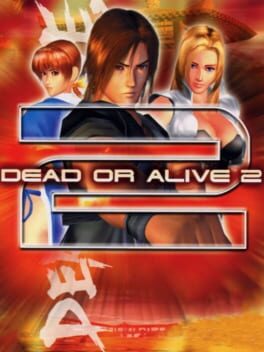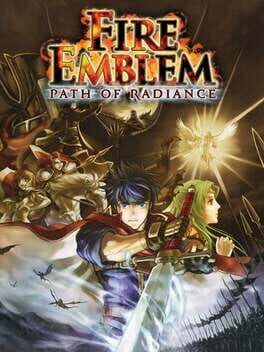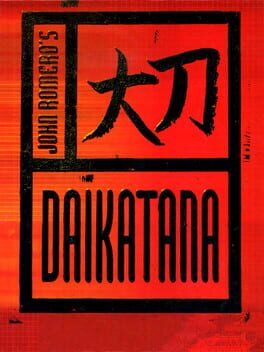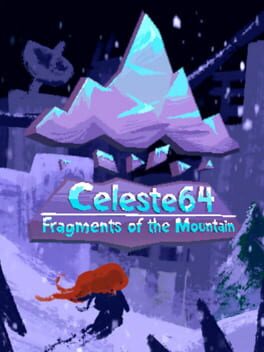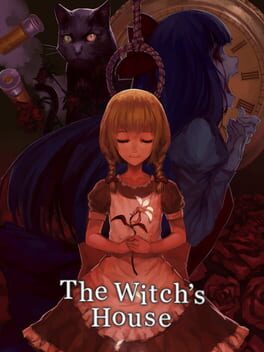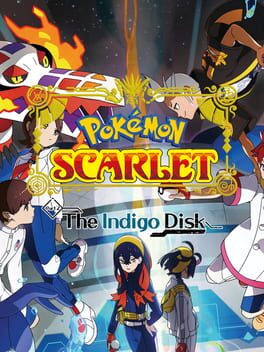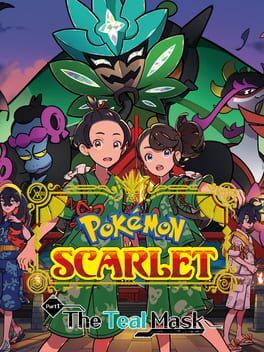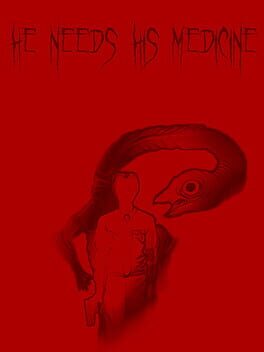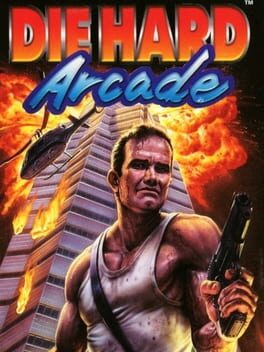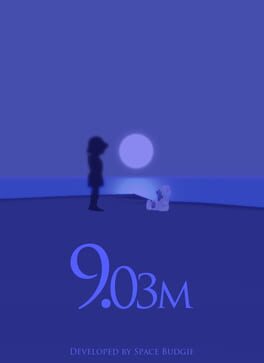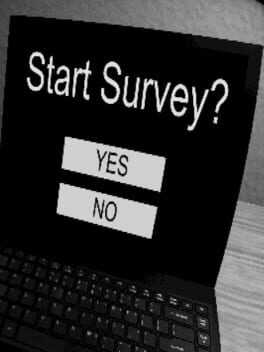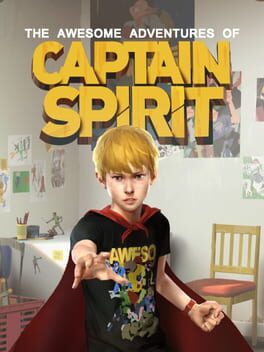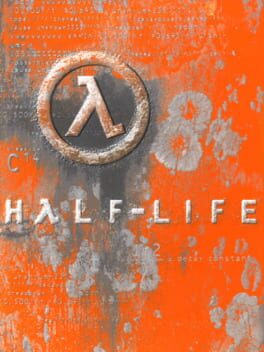Izavid
73 Reviews liked by Izavid
Dead or Alive 2
1999
It seems that Dead or Alive 1 was alive enough to get a sequel.
Dead or Alive 2 is a really fun sequel to its poorly made older brother, it pretty much takes everything from the console port of Dead or Alive 1 and just cranks the graphics and gameplay's smoothness to 100, it's a wonderful sequel that maybe doesn't bring much to the table other than a few basic game modes but it polishes the hell out of its predecessor and for a fighting game that's the most important thing to do.
It obviously adds more characters, stages, and game modes compared to Dead or Alive 1, the roaster doubled from its predecessor and the stages actually feel like new stages since they have this thing called danger zones, little quirk event that happens if a character get thrown offstage then a small cutscene plays and the combat resume where the character fell, dynamic stages are such a nice addition, it really reminds me of those QTEs from the Yakuza games.
And another important addition would be the Story mode, each character has its own "story" but in reality, it's just an Arcade mode with very short cutscenes between characters to explain their relations with each other, some have cutscenes and some don't but it's a very vague way to add lore, it could be a whole lot better and feel like it was made as an afterthought, though if you complete each story in the Limited Edition Japanese release you unlock Bayman from Dead or Alive 1.
Dead or Alive 2 on the Dreamcast might be the best entry point for anyone, especially the Japanese version called the "Limited Edition" which adds two new unlockable characters, new stages, and game modes. This game is really noob friendly as it doesn't take long to learn how the combat works, it's overall just a very fun game to play even solo against CPUs.
Overall just a really good sequel that polishes everything and makes the game a ton of fun to play, the best characters are Tina, Leon, Jann Lee, and Ein.
Dead or Alive 2 is a really fun sequel to its poorly made older brother, it pretty much takes everything from the console port of Dead or Alive 1 and just cranks the graphics and gameplay's smoothness to 100, it's a wonderful sequel that maybe doesn't bring much to the table other than a few basic game modes but it polishes the hell out of its predecessor and for a fighting game that's the most important thing to do.
It obviously adds more characters, stages, and game modes compared to Dead or Alive 1, the roaster doubled from its predecessor and the stages actually feel like new stages since they have this thing called danger zones, little quirk event that happens if a character get thrown offstage then a small cutscene plays and the combat resume where the character fell, dynamic stages are such a nice addition, it really reminds me of those QTEs from the Yakuza games.
And another important addition would be the Story mode, each character has its own "story" but in reality, it's just an Arcade mode with very short cutscenes between characters to explain their relations with each other, some have cutscenes and some don't but it's a very vague way to add lore, it could be a whole lot better and feel like it was made as an afterthought, though if you complete each story in the Limited Edition Japanese release you unlock Bayman from Dead or Alive 1.
Dead or Alive 2 on the Dreamcast might be the best entry point for anyone, especially the Japanese version called the "Limited Edition" which adds two new unlockable characters, new stages, and game modes. This game is really noob friendly as it doesn't take long to learn how the combat works, it's overall just a very fun game to play even solo against CPUs.
Overall just a really good sequel that polishes everything and makes the game a ton of fun to play, the best characters are Tina, Leon, Jann Lee, and Ein.
At risk of beating a dead horse, I think the weakest part of Path of Radiance is easily its relatively low difficulty. To preface, this is from the perspective of a series veteran (“awakening babies” get to call ourselves vets now, how lovely) with a very intimate understanding of what’s ‘good’ in these games, but I started playing with 35% increased enemy growths, later bumped it to 55% and I still felt like I was cruising through most of the mid to lategame chapters. A lot of those chapters lack any sort of pressure to threaten your strong units or to push you to move faster (the latter camp usually being enemy thieves that a good mount can easily reach) and boil down to being very sluggish ‘fields with enemies’ that let you tackle them as risk-free as you want. Combined with how high growths are and how BEXP lets you blitz even further ahead of the curve and I think most of the game lacks bite even when the enemies are boosted to the point where they border on unfair. It has a lot of interesting things going on in theory - side objectives for BEXP, forges being limited to one per chapter, some cool gimmick chapters late on (CH22 is just a pokemon strength puzzle and I kinda love it) - but the game never has quite enough friction to bring out its own potential.
But the draw of PoR mainly comes from the strength of its writing. The majority of the character writing is very realistically grounded in the game’s settings and situations. Every support and base conversation is lovingly woven to bring out subtleties of the cast’s personalities, worldviews, personal struggles, dynamics, their growth or lack thereof. Their personalities are strong but not exaggerated (for the most part) and the interactions are full of little remarks or conversations that feel unexpectedly resonant or meaningful. It’s a lovely cast that’s very difficult not to fall for. While the story itself has a large focus on Fantasy Racism and does stumble a little into its trappings (primarily its tendency to categorise all Kilvans in one particular way), its angle towards it feels very carefully-written and used in a way that attempts to earnestly explore attitudes towards prejudice. It uses its depictions to present the importance of uprooting systemic oppression and breaking the self-perpetuating cultures of hatred that it brings, and how vital it is to do so despite how much of a Herculean task it is in reality. It all further feeds into a broader theme held up by scenes beyond how it presents discrimination - how understanding and righting past wrongs is vital to be able to truly move forward and make meaningful change or growth. It’s the *honesty* of all its explorations, more than anything, that I found so unexpectedly disarming.
It caught me off-guard with how much I ended up liking it, but it’s really easy to see why it’s so beloved. If you don’t mind it being slightly defanged on the strategy end, it’s a lovely, warm and charming game that’s surprisingly confident in its writing.
But the draw of PoR mainly comes from the strength of its writing. The majority of the character writing is very realistically grounded in the game’s settings and situations. Every support and base conversation is lovingly woven to bring out subtleties of the cast’s personalities, worldviews, personal struggles, dynamics, their growth or lack thereof. Their personalities are strong but not exaggerated (for the most part) and the interactions are full of little remarks or conversations that feel unexpectedly resonant or meaningful. It’s a lovely cast that’s very difficult not to fall for. While the story itself has a large focus on Fantasy Racism and does stumble a little into its trappings (primarily its tendency to categorise all Kilvans in one particular way), its angle towards it feels very carefully-written and used in a way that attempts to earnestly explore attitudes towards prejudice. It uses its depictions to present the importance of uprooting systemic oppression and breaking the self-perpetuating cultures of hatred that it brings, and how vital it is to do so despite how much of a Herculean task it is in reality. It all further feeds into a broader theme held up by scenes beyond how it presents discrimination - how understanding and righting past wrongs is vital to be able to truly move forward and make meaningful change or growth. It’s the *honesty* of all its explorations, more than anything, that I found so unexpectedly disarming.
It caught me off-guard with how much I ended up liking it, but it’s really easy to see why it’s so beloved. If you don’t mind it being slightly defanged on the strategy end, it’s a lovely, warm and charming game that’s surprisingly confident in its writing.
Daikatana
2000
I think there's a reason that most 3D platformers are not all about precision platforming, and tend to be more about the exploration and discovery of an interesting 3D space. There are no doubt games that can tow that line and deliver on both, but they're few and far between.
For Celeste's first 3D outting I don't think that line is towed completely successfully, but what was delivered here is admirable nonetheless. Exploring the level on offer here and learning the ins and outs of the movement, which hews closer to the original Celeste than I expected, was delightful through and through. There are a handful of bursts of precision platforming that demand perfection, but with the generous checkpointing and fast respawns that you'd expect, they don't break up the collect-a-thon-esque flow too much. I think the cracks really begin to show in the hidden cassette tape stages where you're presented with a much more demanding platforming challenge backdropped by a black void evocative of Mario Sunshine. I think these sections feel the most like the precision platforming of the original game translated directly to 3D, and it feels a bit incongruous. Having to quickly move the camera as you dart from platform to platform adds an extra element that really does not compliment this style of platforming.
I think despite those handful of sections though this is a really tight, solid little game that I can see myself returning to on a whim just to soak in the vibes and feel the movement a bit, because it is smooth as hell and there aren't many 3D platformers that clear that bar.
For Celeste's first 3D outting I don't think that line is towed completely successfully, but what was delivered here is admirable nonetheless. Exploring the level on offer here and learning the ins and outs of the movement, which hews closer to the original Celeste than I expected, was delightful through and through. There are a handful of bursts of precision platforming that demand perfection, but with the generous checkpointing and fast respawns that you'd expect, they don't break up the collect-a-thon-esque flow too much. I think the cracks really begin to show in the hidden cassette tape stages where you're presented with a much more demanding platforming challenge backdropped by a black void evocative of Mario Sunshine. I think these sections feel the most like the precision platforming of the original game translated directly to 3D, and it feels a bit incongruous. Having to quickly move the camera as you dart from platform to platform adds an extra element that really does not compliment this style of platforming.
I think despite those handful of sections though this is a really tight, solid little game that I can see myself returning to on a whim just to soak in the vibes and feel the movement a bit, because it is smooth as hell and there aren't many 3D platformers that clear that bar.
The Witch's House
2012
Spec Ops: The Line
2012
This review contains spoilers
you know what? fuck it. spec ops: the line is worth five stars and then some. for a long time i sat on the fence about it, and had it collecting dust, uncommentated, at 4.5 stars - no more.
the fact this game was shuffled out-of-sight by 2k games, that an attempt is being made to erase its existence from the public under dubious pretenses at worst, or that it's been dropped in a double-whammy of corporate greed and convenient timing at best, shows us that this game is just as sorely needed now as it was 12 years ago.
many like to do a little joking about its "look what i made you do"-narrative, but those people are unaware that this precise portrayal of leadership at the hands of a vague authority is part of the point. this is taking down not merely the modern military shooter alone, but the entirety of the military industrial complex and its implications. the game design here is a direct analogue of the military chain of command, and the way it attempts to dissuade individuals and society as a whole from seeking blame in the hands of the actor.
on february 25th 2024, united states airforce member aaron bushnell self-immolated rather than continuing to maintain part in the u.s. military's support of yet another genocide - a genocide funded and fueled by this global force for despicable violence, a genocide committed, in part, with white phosphorous used against a civilian population.
the timing is just a bit TOO on-the-nose. we are supposed to forget that the same thing fuels this propaganda as fuels the systematic dehumanisation and killing of several peoples in asia and africa. spec ops, unlike every single other "modern military shooter", didnt flinch, and didnt lie. and for that, it had to disappear.
this is the only game that had the guts to give the player a gun, and let them shoot at a peaceful civilian population - then stand there with the implications of their actions. no fade-out. no game over. only you and the simulacrum of a dead body.
from the river to the sea, palestine will be free.
the fact this game was shuffled out-of-sight by 2k games, that an attempt is being made to erase its existence from the public under dubious pretenses at worst, or that it's been dropped in a double-whammy of corporate greed and convenient timing at best, shows us that this game is just as sorely needed now as it was 12 years ago.
many like to do a little joking about its "look what i made you do"-narrative, but those people are unaware that this precise portrayal of leadership at the hands of a vague authority is part of the point. this is taking down not merely the modern military shooter alone, but the entirety of the military industrial complex and its implications. the game design here is a direct analogue of the military chain of command, and the way it attempts to dissuade individuals and society as a whole from seeking blame in the hands of the actor.
on february 25th 2024, united states airforce member aaron bushnell self-immolated rather than continuing to maintain part in the u.s. military's support of yet another genocide - a genocide funded and fueled by this global force for despicable violence, a genocide committed, in part, with white phosphorous used against a civilian population.
the timing is just a bit TOO on-the-nose. we are supposed to forget that the same thing fuels this propaganda as fuels the systematic dehumanisation and killing of several peoples in asia and africa. spec ops, unlike every single other "modern military shooter", didnt flinch, and didnt lie. and for that, it had to disappear.
this is the only game that had the guts to give the player a gun, and let them shoot at a peaceful civilian population - then stand there with the implications of their actions. no fade-out. no game over. only you and the simulacrum of a dead body.
from the river to the sea, palestine will be free.
Much better than DLC 1.
Although DLC 1 set the build-up, this delivered the rest.
Overall, the DLC felt more entertaining and engaging in general, not to mention how challenging it was compared to the base game.
The forced doubles format makes it so you can't just go and steamroll through everyone, you have to actually come up with good strategies.
The story was nice, if a bit anticlimatic regarding the BBA arc.
Whereas I didn't care at all for Sword and Shield's DLC 2, I completed this one in two days only
Although DLC 1 set the build-up, this delivered the rest.
Overall, the DLC felt more entertaining and engaging in general, not to mention how challenging it was compared to the base game.
The forced doubles format makes it so you can't just go and steamroll through everyone, you have to actually come up with good strategies.
The story was nice, if a bit anticlimatic regarding the BBA arc.
Whereas I didn't care at all for Sword and Shield's DLC 2, I completed this one in two days only
I definitely wish there was a bit more to do in Kitakami, but I really liked how it felt more like an actual place than the giant theme park that is Paldea. The story was pretty decent, but that's not surprising considering how Scarlet and Violet had surprisingly solid character writing. Carmine and Kieran were cool characters, but I can't really elaborate on them further since I haven't played Indigo Disc yet. I'm also surprised by how much I like Ogerpon. It's such a cute design and its little cloak/hoodie changing color with each mask is a nice touch.
Die Hard Arcade
1996
9.03m
2013
Start Survey?
2019
Other than the fact that it's too easy to accidentally finish the game without finishing all objectives and getting to experience all the cool scenes from Chris' imagination, exploring the little house and its surroundings is really cool as you learn more about the kid and his family, especially the origin of his archnemesis, MantRoid.
Half-Life
1998
I wish I'd enjoyed this more. It goes without saying that playing a 25 year old game isn't exactly going to yield the same experience as a more modern one, and the games of the 90s in particular haven't aged all that well across the board in comparison to say, the mid 2000s, but I was hoping that Half-Life would somehow be an exception.
And it's not like it entirely wasn't. There is still plenty about this thing to enjoy, there's just also a lot of utter dogshit in here as well. It feels mildly sacrilegious to say that about one of the most influential and near-universally beloved games ever made, but I personally don't really subscribe to the notion that old games should be given all that much slack when it comes to critique simply on the basis that their issues didn't seem like issues at the time of their release.
Still, on the topic of that influence, it's definitely what appealed to me most about Half-Life. I've wanted to go back and see the root of the DNA of many games I've loved over the years for a good while now, and it was apparent right from the beginning just how many games of all genres, especially but not limited to shooters, have borrowed from the ground rules that Valve set a quarter of a century ago. Everything from Bioshock to Call of Duty has Half-Life to thank for revolutionizing the medium and paving the way toward greener pastures.
But again, that doesn't necessarily mean it's still good. Movement feels pretty awful, combat feels limp, puzzles are obtuse and uninteresting to solve, I even found the oft-praised narrative to be mostly uninteresting. I don't want to go on for too long about everything that I'd consider less than stellar about Half-Life, as pretty much all its drawbacks can be attributed to its aforementioned age, but I just find it a tad unbelievable how many people look back at this thing through rose-coloured glasses and completely ignore all the aspects that make it a consistently frustrating and annoying game to play through in modern times.
I'm sure it was insane in 1998 to play an FPS where enemies did anything other than just blindly bumrush you, or where you had the freedom to violently murder any random scientist or security guard you come across, etc. And I have to give the game its flowers for opening people's eyes to the possibilities of video games in a way that had never been done prior. But in the year of our lord 2023, it's just not that novel or fun anymore.
And it's not like it entirely wasn't. There is still plenty about this thing to enjoy, there's just also a lot of utter dogshit in here as well. It feels mildly sacrilegious to say that about one of the most influential and near-universally beloved games ever made, but I personally don't really subscribe to the notion that old games should be given all that much slack when it comes to critique simply on the basis that their issues didn't seem like issues at the time of their release.
Still, on the topic of that influence, it's definitely what appealed to me most about Half-Life. I've wanted to go back and see the root of the DNA of many games I've loved over the years for a good while now, and it was apparent right from the beginning just how many games of all genres, especially but not limited to shooters, have borrowed from the ground rules that Valve set a quarter of a century ago. Everything from Bioshock to Call of Duty has Half-Life to thank for revolutionizing the medium and paving the way toward greener pastures.
But again, that doesn't necessarily mean it's still good. Movement feels pretty awful, combat feels limp, puzzles are obtuse and uninteresting to solve, I even found the oft-praised narrative to be mostly uninteresting. I don't want to go on for too long about everything that I'd consider less than stellar about Half-Life, as pretty much all its drawbacks can be attributed to its aforementioned age, but I just find it a tad unbelievable how many people look back at this thing through rose-coloured glasses and completely ignore all the aspects that make it a consistently frustrating and annoying game to play through in modern times.
I'm sure it was insane in 1998 to play an FPS where enemies did anything other than just blindly bumrush you, or where you had the freedom to violently murder any random scientist or security guard you come across, etc. And I have to give the game its flowers for opening people's eyes to the possibilities of video games in a way that had never been done prior. But in the year of our lord 2023, it's just not that novel or fun anymore.
